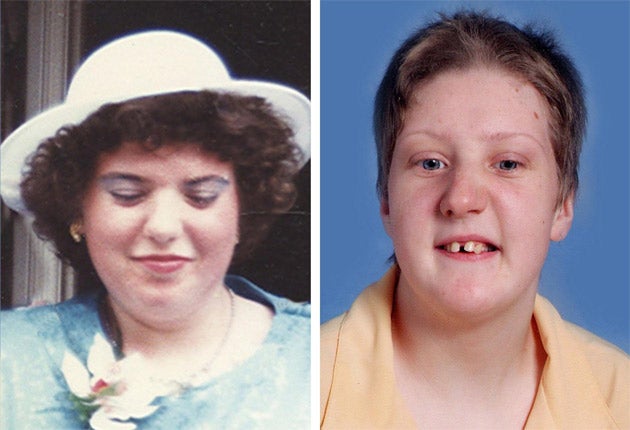Johnson blames police for Pilkington deaths
Home Secretary responds to tragedy of mother and disabled daughter

Your support helps us to tell the story
From reproductive rights to climate change to Big Tech, The Independent is on the ground when the story is developing. Whether it's investigating the financials of Elon Musk's pro-Trump PAC or producing our latest documentary, 'The A Word', which shines a light on the American women fighting for reproductive rights, we know how important it is to parse out the facts from the messaging.
At such a critical moment in US history, we need reporters on the ground. Your donation allows us to keep sending journalists to speak to both sides of the story.
The Independent is trusted by Americans across the entire political spectrum. And unlike many other quality news outlets, we choose not to lock Americans out of our reporting and analysis with paywalls. We believe quality journalism should be available to everyone, paid for by those who can afford it.
Your support makes all the difference.The Home Secretary has accused the police of having an unacceptable "mindset" in failing to tackle the kind of anti-social behaviour which led to the deaths of Fiona Pilkington and her daughter, Francecca Hardwick.
Yesterday, Alan Johnson publicly criticised the senior Leicestershire police officer at the Pilkington inquest, who said that dealing with low-level antisocial behaviour was no longer a police matter but should be dealt with by local authorities.
"It is ludicrous and ridiculous," Mr Johnson said. "It's completely inexplicable how a police officer could say that, but it suggests there is a mindset there." Mr Johnson's comments immediately provoked criticism from the Police Federation, which represents frontline officers.
Its vice-chairman Simon Reed said: "The Government cannot have its cake and eat it. They introduce initiative after initiative and expect the service to plough resources into it, without considering the negative impact it may have on other policing functions.
"They introduced neighbourhood policing teams, who in the main deal with low-level disorder including anti-social behaviour, but fill these teams with community support officers who have no powers and experience to effectively deal with the problems.
"Anti-social behaviour is not just a policing problem – all agencies, whether it's the local authority, schools and parents, must play their part." He said that a new "zero-tolerance" approach to anti-social behaviour was needed, with sufficient police officers on the streets and a criminal justice system which "actually does something" about offenders when police brought them to justice.
The inquest jury found that the failure of police to respond adequately to the Pilkington complaints contributed to their deaths. Ms Pilkington killed herself and her daughter by setting fire to their car in October 2007.
Speaking to journalists at a Home Office briefing in London ahead of the launch of a new anti-social behaviour policy, Mr Johnson conceded that the Government should also accept responsibility for not being "focused" on the issue.
"I think we have cruised a bit on this, because we were tackling issues like counter-terrorism," he said. "We let the focus slip."
Yesterday, Mr Johnson committed the Government to a renewed assault on anti-social behaviour, introducing new measures to help police and agencies crack down on trouble-makers.
He also pledged help for individual victims as well as giving a greater voice to communities affected by anti-social behaviour. He said that he wanted to see an improvement in standards within the next six months.
By March next year, police, councils and other agencies will be expected to reach a minimum performance standard. Mr Johnson said that he would also bring in new rules to govern how breaches of anti-social behaviour orders are handled, to ensure they are taken seriously. In future, when an Asbo is breached by a young person, their parents will automatically be put under a court order.
Victim-support services will be extended to all victims of anti-social behaviour who give evidence against their attackers in magistrates' courts.
The Home Office has promised to spend £2.8m over two years on a network of 87 victim and witness champions. And since the Asbo scheme was introduced by Tony Blair in 1998, more than 15,000 orders have been issued. Critics say that they criminalise the behaviour of teenagers and help to accelerate their involvement in more serious offending, but the Home Office insists that the majority of Asbos imposed on children help to curb their unruly behaviour.
Join our commenting forum
Join thought-provoking conversations, follow other Independent readers and see their replies
Comments